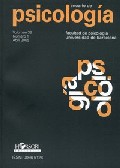Family relationships and adolescent development
Abstract
This article presents the most important findings from research carried out in recent decades on adolescent development in the family context, special attention being paid to two main topics: changes in family relationships with the arrival of adolescence and family influences on teenagers’ development and adjustment. Following a dimensional approach, key elements of parent-adolescent relationships such as affect, communication, conflict, control and the granting of autonomy are analysed. Empirical research on this topic shows that adolescents benefit from having parents who are warm, communicative and who promote autonomy. Control and conflict could also be considered as exercising a positive influence but, in this case, the consequences are less evident. At all events, the available data do not support a catastrophic view of parent-adolescent relationships. With the exception of early adolescence, when conflicts are more frequent, parent-adolescent relationships are usually positive and satisfactory. Finally, the importance of providing parents with appropriate guidance and resources in order to help them in exercising the parental role is discussed. Finally, the importance of providing parents with appropriate guidance and resources in order to help them in exercising the parental role is discussed.Downloads
Published
2006-01-12
Issue
Section
Dossier: Adolescencia en un contexto familiar y comunitario (Editor: Alfredo Oliva)
License
The authors who publish in this journal agree to the following terms:
Authors transfer to the publisher all copyright for the full term of protection and for all the world.
The authors can post a copy of their articles in accordance with the policy of free access to the journal.


